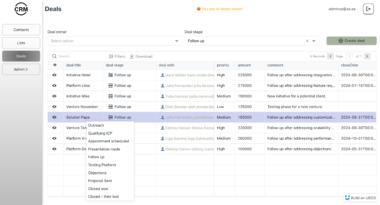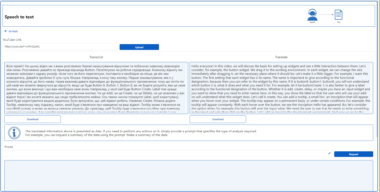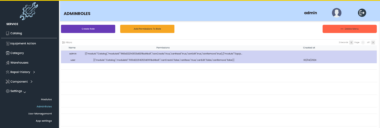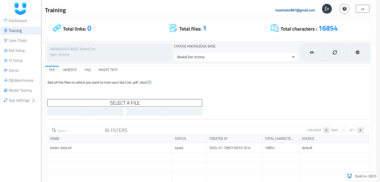Frequently Asked Questions (FAQ) about Docker MCP Server
Q: What is a Docker MCP Server? A: A Docker MCP Server is a tool that allows AI models (specifically, AI Agents) to interact with and manage Docker containers, images, and related resources. It uses the Model Context Protocol (MCP) to provide a standardized interface.
Q: What is MCP (Model Context Protocol)? A: MCP is an open protocol standardizing how applications provide context to Large Language Models (LLMs). It enables AI models to access external data and tools in a consistent way.
Q: What are the benefits of using a Docker MCP Server? A: The benefits include:
- Automating Docker container management using AI Agents.
- Providing AI Agents with real-time information about container status and resource usage.
- Enabling AI Agents to trigger actions like deploying, scaling, or restarting containers.
- Simplifying integration between AI models and containerized applications.
Q: What Docker operations are supported by the Docker MCP Server? A: The server supports a wide range of Docker operations, including:
- Listing containers and images
- Running, stopping, and removing containers
- Pulling images from registries
- Managing Docker Compose applications
- Managing networks and volumes
- Inspecting containers and retrieving logs
Q: Does the Docker MCP Server support Docker Compose?
A: Yes, it supports both new (docker compose) and legacy (docker-compose) versions of Docker Compose, automatically adapting to the available command.
Q: How do I install the Docker MCP Server?
A: You can install it via npm (npm install -g docker-mcp-server) or from source by cloning the repository and building the project (npm install, npm run build).
Q: How do I configure the Docker MCP Server to work with Claude (Anthropic’s AI assistant)?
A: You can use the included installation script (npm run install-config) to automatically configure the server with Claude Desktop or VSCode. Manual configuration involves editing Claude’s MCP settings file with the correct path to the server executable.
Q: What is the ‘tools/list’ method in MCP?
A: The tools/list method is part of the MCP standard. It allows a client (like an AI Agent) to discover the available tools or functions that the MCP server provides. In the case of the Docker MCP Server, it would list the available Docker management commands.
Q: What is the ‘tools/call’ method in MCP?
A: The tools/call method is used to execute a specific tool or function provided by the MCP server. The client specifies the tool name and any required parameters.
Q: How can I scan Docker images for vulnerabilities using the Docker MCP Server?
A: The server provides a security_scan tool, which requires an external tool like Trivy to be installed. This tool scans Docker images for known vulnerabilities.
Q: Is the Docker MCP Server secure?
A: The server itself provides a standardized interface for managing Docker resources. Security depends on proper configuration, secure coding practices, and the security of the underlying Docker environment. Using the security_scan tool can help identify vulnerabilities.
Q: Where can I find more information and documentation about the Docker MCP Server? A: Refer to the GitHub repository for the Docker MCP Server, which includes detailed documentation, usage examples, and troubleshooting information. Also, check the UBOS platform documentation for information on integrating with UBOS services.
Q: What license is the Docker MCP Server released under? A: The Docker MCP Server is released under the MIT License.
Q: How does the Docker MCP Server relate to the UBOS platform? A: The Docker MCP Server is an asset available on the UBOS Asset Marketplace. It integrates with the UBOS platform, allowing you to orchestrate AI Agents, connect them with your enterprise data, and build custom AI Agents using your own LLM models, all while managing your Docker infrastructure.
Q: What if a command fails because it uses the wrong Docker Compose version?
A: The Docker MCP Server automatically tries the new version (docker compose) first. If that fails, it retries the command using the legacy version (docker-compose). This provides maximum compatibility.
Docker MCP Server
Project Details
- zskycode/docker-mcp
- Last Updated: 4/2/2025
Recomended MCP Servers

OmniMCP uses Microsoft OmniParser and Model Context Protocol (MCP) to provide AI models with rich UI context and...
MCP

MCP to connect your LLM with Spotify.


QMT-MCP-Server

MCP server for Windows OS automation

Perplexity AI MCP Server
StarRocks MCP (Model Context Protocol) Server
 From vibe coding to vibe deployment. UBOS MCP turns ideas into infra with one message.
From vibe coding to vibe deployment. UBOS MCP turns ideas into infra with one message.





